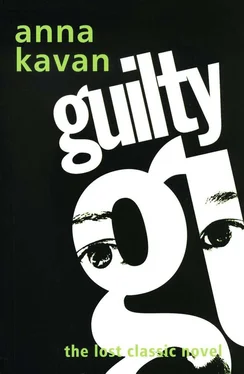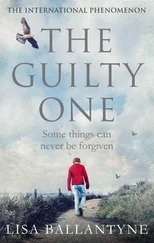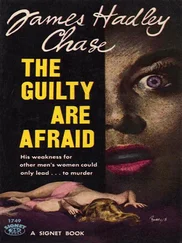Whether the Head realized this danger on his own account or was warned of it by a higher authority, I don’t know; but, in any case, his ruthlessness now proved invaluable for our salvation. Where a more humane man would have wavered, he held relentlessly to the only course possible if any of us were to survive, stamping out sympathy, decreeing that every applicant for food or shelter be turned away and instituting the severest penalties for disobedience. Foreseeing the possibility of desperate wanderers trying to break in by force, the eldest among us were organized in patrols, whose duty was to keep constant watch from the outer boundary walls, which fortunately were high and in good condition. We had also to be on the alert for soft-hearted weaklings within our midst, who, despite the stringent measures taken to prevent it, might secretly have admitted some of these people, whom we were told to regard not as human beings but as a plague-spreading menace, to be kept out at all costs. In the last resort, we were authorized to make use of the rifles of the Cadet Corps, for the issue of which I was responsible to some extent.
It was a strange situation for boys of our age, and I recall quite clearly the curious atmosphere, which, in its febrile excitement, seemed to reflect the unnatural heat of that summer weather. Day after day of blazing windless sun terminated in an accumulation of thunderclouds and the oppressive threat of a storm which never broke. And this atmospheric pressure, working on our nerves, augmented the tension. It was August, high summer; but with us such a stretch of unbroken heat is extremely unusual, especially in conjunction with the absence of wind, which greatly facilitated the accuracy of the bombing, so that rumours circulated to the effect that the weather was controlled by our enemies to their advantage and which, to us in our ignorance, seemed fantastic then. But it was hard not to imagine all sorts of weird happenings in that unnatural heat, which seemed to breed rumours like fever germs. I suppose it was inevitable, since we didn’t even know whom we were fighting.
Though our generation had grown up with the idea of war as a background to life, and had been familiar with war from the cradle, we’d also inherited some respect for the old tradition of chivalrous warfare. We were acquainted with the theory that wars should be fought by professional armies, recruited voluntarily; that battles shouldn’t involve civilians; that soldiers shouldn’t fire on the Red Cross or on prisoners of war. Certainly, we ourselves had no experience of this gentlemanly style of fighting, but in most of us, I believe, the respect for it lingered on as a deep-rooted inheritance. I don’t think a single one of us would, in a secret ballot, have voted for the slaughter of defenceless populations without means of retaliation, if only because this was against our schoolboy code of fair play. None of us had known this new modern type of bombardment, dependent for its success on the element of surprise, which automatically ruled out the old-fashioned declaration of war. Our country succumbed so quickly because it was the first to be taken by surprise in this way. We were the guinea-pigs of the world, which greatly profited by our experience; and we were hampered by being the last inheritors of the now obsolete idea of ‘honourable warfare’, unable to adjust ourselves fast enough to the new ideology.
But this is disconnected from the boy I was at the time, whose thoughts and feelings were still partially childish. I couldn’t help thinking now and again what bad luck my father had had in returning from his long search for peace just in time for the most frightful war we’d ever experienced. If the thought of my own responsibility were anywhere in the background (as, after Jaggers’s remarks, it seems that it must have been), my consciousness carefully censored it. There was no time for brooding over personal feelings, as everyone was immediately conscripted for some work useful to the community, in which I, as a prefect and member of the sixth, was expected to take a leading part. At first, the junior boys, and some seniors who should have known better, were in an excited state, apt to look upon this divergence from the norm as a sort of prolonged picnic. Such jobs as digging potatoes and even indoor chores seemed a pleasant change from ordinary classwork, especially as time off was allowed for games and swimming and resting from the hot sun. But, under our stern supervision, the febrile excitement which infected the youngsters, often making them obstreperous and hard to control, gradually subsided, and even they began to get some inkling of the seriousness of what was going on and to share the anxiety of their elders, many of whom were moody or depressed, disguising fears for their families under an assumed toughness.
Of course, I suffered like other people from these emotional disturbances, for which the heat seemed such a perfect breeding ground. I had no worries over my parents’ safety, knowing our isolated cottage to be far outside any possible target area. But the old story of my father’s switch to pacifism — which everyone else had most likely forgotten — revived in my memory and made me extremely touchy, imagining people suspected me of cowardice in consequence and only refrained from saying so because of the Head’s words all that time ago. And I was impelled to disprove the unmade accusation by demonstrating my courage and militancy in various extreme ways.
For instance, I was the first to volunteer for the boundary patrols, which soon came under my leadership altogether. And my repeated requests led to the issue of rifles from the Cadet Corps and to our being authorized to use them in case of need. Our instructions were, as long as ammunition was plentiful, to fire one preliminary warning shot, but if supplies dwindled this was to be dispensed with. Fortunately it never came to this; we never had to fire twice. But, whenever I handled a rifle, I felt guilty, wondering what my father would think if he knew I was quite ready to shoot to kill — and defenceless, starving people of my own country at that, whose only crime was their sufferings — and had persuaded or forced other boys to bear arms with the same object.
On the sixth day after the first bomb fell, rumours of an armistice became so strong that, though we were strictly forbidden to take any notice of such tales, one could hardly disregard them, especially since they didn’t expire in the usual way to be replaced by others but persisted and strengthened as time went on. People were always asking me, in my capacity as patrol leader and prefect, whether there was any truth in the story; and they obviously remained unconvinced when I replied that I knew no more than they did.
All the next day the rumours went on. And the following day they were almost overwhelming, and all to the same effect. But I forgot them in my amazement at being sent for by the Headmaster, for the first time in the whole of my school career. On the way to his study, I was conceited enough to believe he might be going to congratulate me on my zealousness in patrolling the walls and maintaining discipline and morale, for I could imagine no other reason why he should want to see me.
But it was obvious as soon as I entered that his hostility was unchanged. Barely glancing at me, he acknowledged my salute only with a curt nod, while he went on writing at his desk in front of the open window. Outside there, I could see the chessmen, at their most mocking, crowd one behind the other to peer in derisively at me, as though all the centuries-old malice, which should have been distributed over the whole human race, had been concentrated on me alone.
It shows how far from normal our reactions were at this time that I should have thought the man at the desk could be in league with these trees and had deliberately planned to subject me to the barrage of their spectral contempt. Though I looked away from the window and forced myself to keep calm, I became increasingly conscious of the uncanny disparagement out of doors, which, against all natural laws, reached me from a different category of existence, and I felt a fine perspiration break out on my forehead, though it was cool in the room.
Читать дальше












